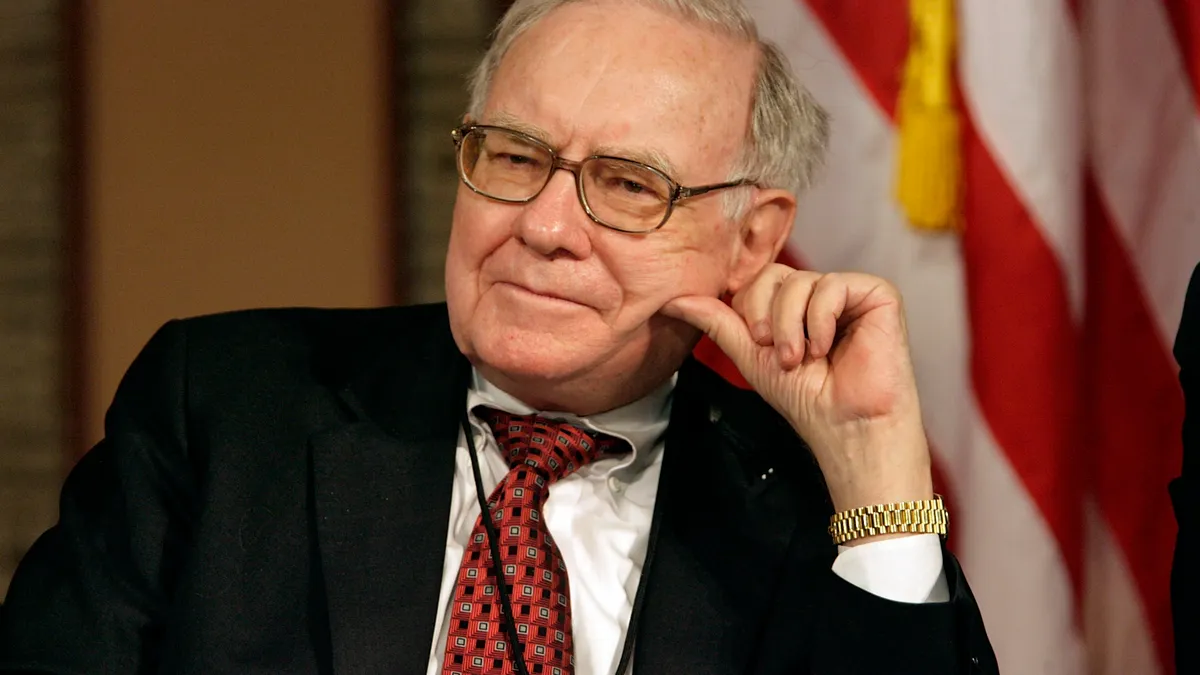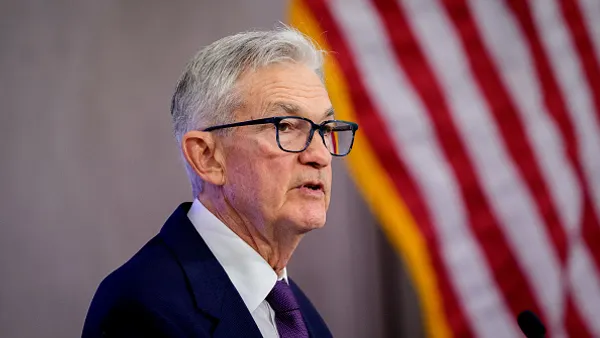Warren Buffett — CEO of Berkshire Hathaway and one of the world’s most renowned investors — didn’t disappoint fans of his folksy, acerbic writing in his latest letter to shareholders.
The Oracle from Omaha expressed his confidence in the U.S. economy, called near-term economic and market forecasts “worse than useless,” decried critics of stock buybacks and asserted “imaginative accounting” has become “one of the shames of capitalism.”
Also tucked into the missive was a section addressing his long-held frustration with a generally accepted accounting principles rule — a frustration likely shared by CFOs and their accounting departments struggling to meet earnings expectations each quarter.
Buffett warns of the deceptive volatility of the GAAP earnings figures due to the requirement that they include unrealized capital gains or losses from the company’s equity holdings. Instead, he urges his shareholders to focus on operating earnings which exclude those gains and losses.
“The GAAP earnings are 100% misleading when viewed quarterly or even annually,” Buffett wrote in the Feb. 25 letter. “Capital gains, to be sure, have been hugely important to Berkshire over past decades. But their quarter-by-quarter gyrations, regularly and mindlessly headlined by media, totally misinform investors.”
Not so fast, some accounting experts said. There are merits to GAAP earnings figures even as the system can be especially punishing to a company like Berkshire Hathaway that holds shares of other companies in a volatile year for the stock market like 2022, Kate Suslava, an assistant professor of accounting at Bucknell University in Lewisburg, Pennsylvania, said in an interview.
“The benefit of the U.S. GAAP rules is that they are uniform. No matter if you’re Warren Buffett or a tiny public company in the middle of Pennsylvania, you follow the same rules,” Suslava said, noting that Buffett may have felt he had to bring up the accounting issue to explain the year’s loss. “They’re reporting a negative number at the bottom line so you have to take his words with a grain of salt.”
Still, Suslava said it is not unusual for companies to have their own preferred way to measure their firm’s health, adding that analysts and other investors routinely make adjustments to account for one-time events as they seek to interpret financial reports.
Buffett called 2022 a “good year” for Berkshire but it wasn’t an easy one. On Saturday the company reported a GAAP net loss of $22.8 billion for the full year of 2022, compared to net earnings of $89.79 billion in 2021. Viewed through the lens of his favored operating earnings, which excludes the unrealized gains or losses from equity, the company did much better. It reported record operating earnings of $30.8 billion in 2022, Buffett wrote, compared with the $27.4 billion in the year earlier.
Buffett has been consistent in his criticism of the GAAP rule. In a letter he wrote in 2018 ahead of its adoption, he asserted it “will severely distort Berkshire’s net income figures and very often mislead commentators and investors.”
Again in the following year’s letter he reiterated his concerns, saying that the rule was not sensible and blaming the mark-to-market change for GAAP losses the company reported in the first and fourth quarters of 2018, the same year that many businesses the company owned delivered consistent operatings earnings in all four quarters. “Our advice? Focus on operating earnings, paying little attention to gains or losses of any variety,” he wrote.
It’s possible that Buffett’s use of his shareholder pulpit to bring attention to the GAAP concerns could lead to accounting improvements, Austin Sudbury, associate teaching professor of accounting at Carnegie Mellon University’s Tepper School of Business, said in an interview.
But Sudbury also points out that there will always be tradeoffs involved in setting up financial statements for general use purposes. “To the extent that his comments make people think the financial statements aren’t as perfect or as good as people would like them to be and because of the tradeoffs that they’re completely useless … I don’t think that’s helpful,” he said.














